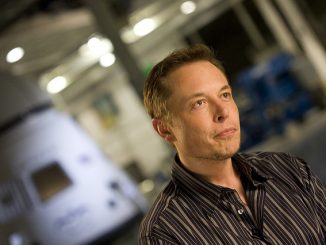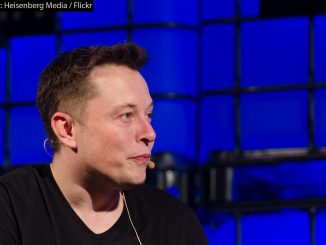Elon Musk, the visionary entrepreneur behind SpaceX and Tesla, has once again stirred the cosmic pot with a thought-provoking statement about humanity’s future in space.
Musk recently declared, “Civilization only passes the single-planet Great Filter when Mars can survive even if Earth supply ships stop coming.”
“Civilization only passes the single-planet Great Filter when Mars can survive even if Earth supply ships stop coming.”
— Elon Musk pic.twitter.com/mRQyacUUGQ
— Dima Zeniuk (@DimaZeniuk) July 17, 2024
This statement encapsulates Musk’s long-standing mission to make humanity a multi-planetary species, with a particular focus on Mars colonization.
But what does this mean in the context of the Great Filter theory?
The Great Filter, a concept in astrobiology and the search for extraterrestrial intelligence, suggests that there are immense challenges that civilizations must overcome to reach an advanced stage of development.
The “single-planet” qualifier refers to the hurdle of expanding beyond the confines of a species’ home world.
Musk’s statement implies that true cosmic resilience comes not just from reaching another planet, but from establishing a fully self-sustaining presence there. In his view, a Mars colony dependent on Earth for supplies hasn’t truly passed this filter.
Only when Mars can thrive independently, withstanding potential disruptions from Earth, will humanity have truly become a multi-planetary civilization.
This perspective underscores the monumental challenges involved in Mars colonization. It’s not just about getting there or even establishing a permanent base. The real test lies in creating a colony that can generate its own food, water, oxygen, and energy, manufacture necessary equipment, and sustain a growing population – all in the harsh Martian environment.
Musk’s vision goes beyond mere survival. It’s about creating a backup for human civilization, a safeguard against potential extinction events on Earth.
By setting the bar at complete Martian self-sufficiency, he’s pushing for a level of technological and logistical advancement that could revolutionize life on Earth as well.
Critics might argue that focusing on Mars colonization diverts resources from solving pressing Earth-bound problems. However, Musk and his supporters contend that the innovations required for Mars colonization could yield solutions to terrestrial challenges in energy, resource management, and environmental control.
As SpaceX continues to develop its Starship system, designed explicitly for Mars missions, Musk’s ambitious goal seems less like science fiction and more like an audacious yet achievable aim.
The journey to a self-sustaining Mars, however, remains a monumental task that will likely require decades of effort, the integration of AI, and unprecedented international cooperation.
In conclusion, Musk’s statement serves as both a clarion call and a sobering reminder of the challenges ahead.
As humanity stands on the brink of becoming a spacefaring civilization, the true measure of our success may not be in reaching new worlds, but in our ability to thrive on them independently.
The race to pass the single-planet Great Filter is on, and in Musk’s view, the finish line is a self-reliant Mars colony.
- Bulenox: Get 45% to 91% OFF ... Use Discount Code: UNO
- Risk Our Money Not Yours | Get 50% to 90% OFF ... Use Discount Code: MMBVBKSM
Disclaimer: This page contains affiliate links. If you choose to make a purchase after clicking a link, we may receive a commission at no additional cost to you. Thank you for your support!





Leave a Reply